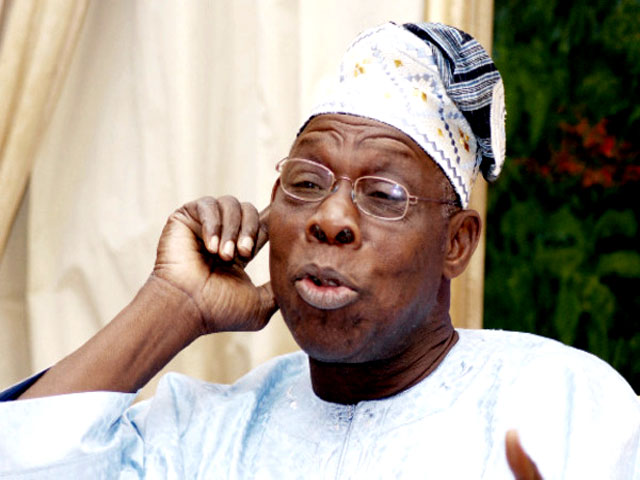Former President Olusegun Obasanjo on Tuesday said that the administration of President Goodluck Jonathan was not doing enough to reach out to the Boko Haram Islamist sect, and rather than use a carrot-and-stick approach, he was applying excess force and inadequate dialogue.
“To deal with a group such as this one, you need a carrot and a stick. The carrot is finding out how to reach them. When you try to reach out to them and they are not amenable to being reached out to, then you use the stick,” said the former President in a CNN interview.
“Unfortunately, Jonathan is using only the stick, which he is doing well, but the other aspect must not be forgotten.”
Obasanjo added that he had attempted to reach Boko Haram via a lawyer who acted as proxy and had asked if they had external support, a question to which they replied in the affirmative.
He said he had worries that if the support they received from Nigerians with resources abroad or “other organizations abroad” was 25% a year and half ago, it would have doubled now.
Obasanjo said the country’s progress rested centrally on solving the issue.
“Boko Haram undermines security, and anything that undermines security undermines development, undermines education, undermines health, undermines agriculture and food and nutrition security,” he said.
It would be recalled that in 2011, the former President had made a widely-reported contact with the sect. however, the in-law to the late leader of the sect, Mohammed Yusuf was murdered barely 24 hours after, an action seen as a sign of refusal of Obasanjo’s intervention.
However, the Presidency reacted to the views of the ex-President, saying he has been taking contradictory positions on the Boko Haram issue.
According to presidential spokesman, Reuben Abati, it was surprising that the same Obasanjo who said his presidency used force when faced with a similar situation in Odi, Bayelsa State has now turned round to accuse Jonathan of applying only the stick against Boko Haram.
“Where exactly does he stand on this matter?” Abati asked.
Also, the Northern chapter of the Christian Association of Nigeria has described the ex-President’s position as unfortunate as it repeated its opposition to any dialogue with Boko Haram.
Speaking through its Public Relations Officer, Mr Sunny Oibe, CAN representing the 19 Northern States said, “How do you negotiate with a faceless group unless Obasanjo knows them? This is the same Obasanjo who went to see the family of Boko Haram founder, Yusuf Mohammed and after discussing with them, a senior member of the family was slaughtered. Our stand remains that you don’t negotiate with a faceless group.”
They advised President Jonathan to ignore such advice as it is a booby trap set up for him to fall. They opined that should the government negotiate with Boko Haram, other groups would now emerge and hold government and the people to ransom.
Spokesman for the frontline Northern group, Arewa Consultative Forum, Anthony Sani, while speaking last week said he did not believe that force was the way out of the current security challenge.
“In terms of security, dialogue remains the best. It is not the only way out, but I believe it still remains the best.”
Sani made these remarks while reacting to the President celebrating the fact that several bombing attempts had been thwarted by the security agencies during the Christmas festivities.
He said that it was sad that the President was celebrating such, but added that it does not take away the need for dialogue as a viable option. The use of force by President Umaru Yar’adua which killed 700 members of the sect but failed to cripple its leader should be taken as a precedent.”
Boko Haram members have been waging a violent campaign against the Federal Government since 2009 by attacking military and police facilities and government buildings in the Northern states and Abuja. It also has attacked drinking joints and houses of worship.
The group in 2011 attacked the Police Headquarters and the United Nations office in the federal capital, Abuja, killing many people.
The international rights group, Human Rights Watch, in a report late last year had said Boko Haram members had killed more than 2800 people.

